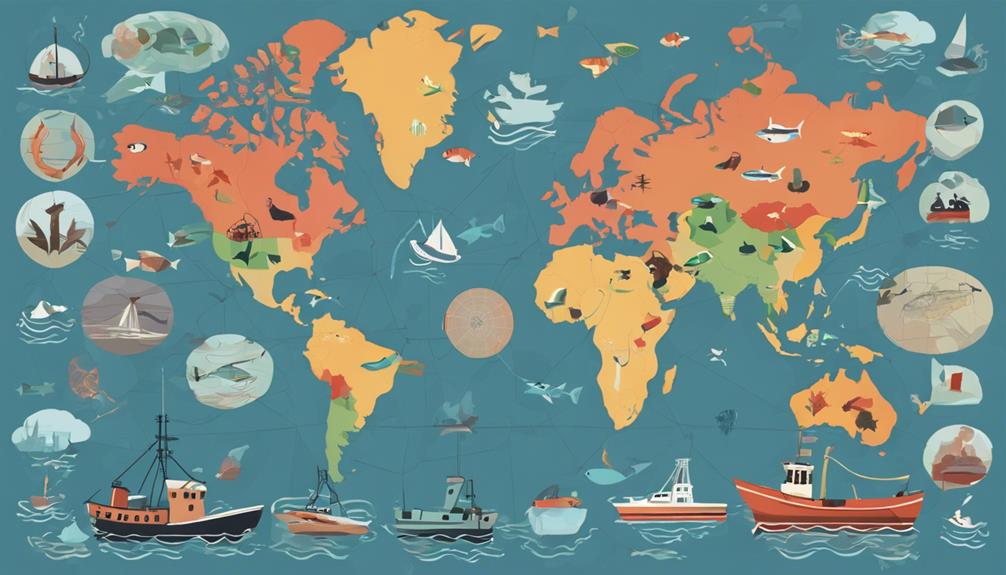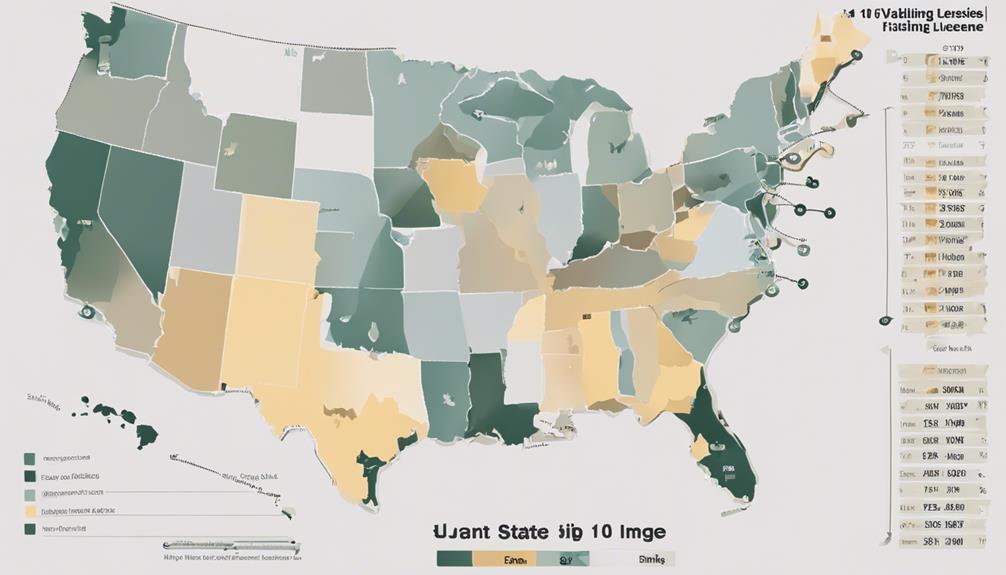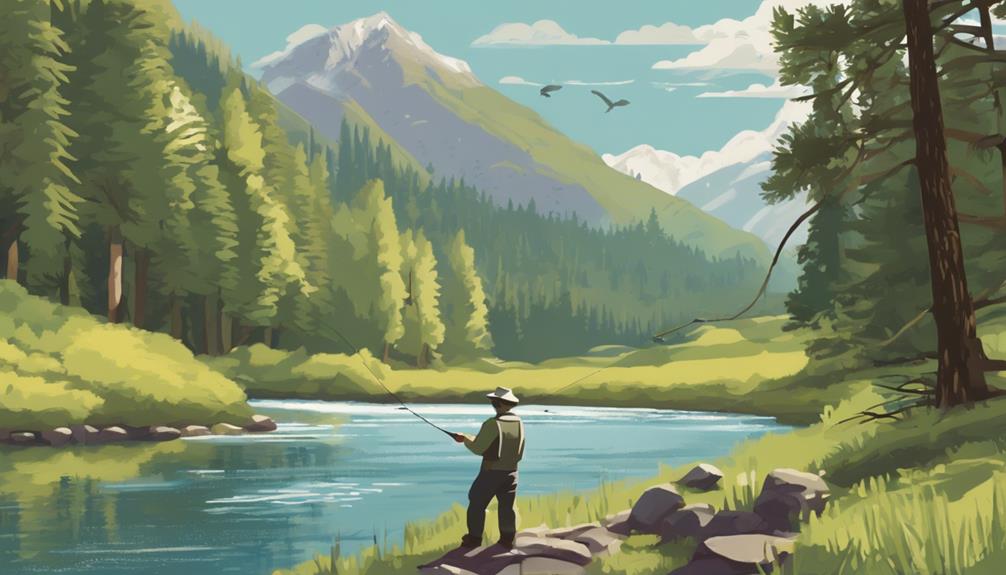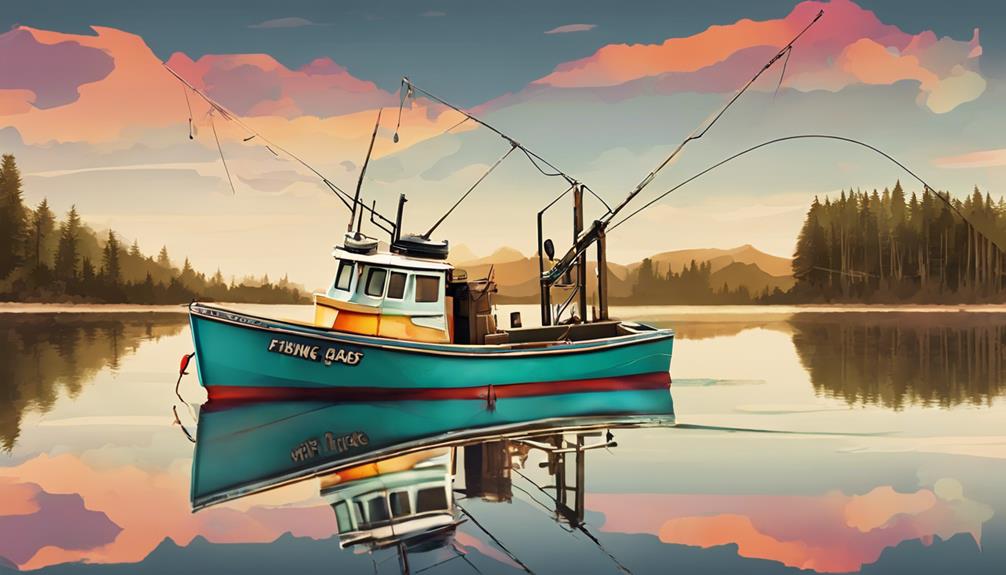Have you ever wondered how different countries around the world regulate fishing licenses for international anglers? The varying rules and regulations can be quite complex, requiring careful navigation to ensure compliance.
Understanding these nuances is essential for any angler looking to cast their line in foreign waters. Explore the intricacies of fishing license regulations across continents, from Europe to Asia, Africa to Oceania, and South America.
Unravel the intricacies of international fishing permit policies to ensure your next fishing expedition is both legal and enjoyable.
Overview of Fishing License Regulations
Understanding international fishing license regulations can be crucial for anyone planning to engage in fishing activities abroad. The overview of fishing license regulations provides insight into the requirements and processes involved in obtaining the necessary permits to fish in foreign waters. The application process for international fishing licenses varies from country to country, with each nation having its own set of rules and procedures.
When applying for an international fishing license, you'll generally need to provide personal information, such as your name, address, and contact details. Additionally, you may be required to submit identification documents, proof of fishing experience, and details of the specific fishing activities you intend to undertake. Some countries may also request information on the type of equipment you plan to use while fishing.
It is essential to research the specific regulations of the country you wish to fish in to ensure compliance with their laws. Failure to obtain the proper fishing license can result in fines, confiscation of equipment, or even legal action. By familiarizing yourself with the application process and requirements beforehand, you can avoid any potential issues and enjoy a seamless fishing experience abroad.
European Union Fishing License Requirements
To ensure compliance with European Union fishing regulations, it's important to be aware of the specific requirements for obtaining a fishing license in EU waters. When applying for European fishing permits, here are some key points to consider:
- Eligibility: Make sure you meet the eligibility criteria set forth by the EU fishing regulations before applying for a fishing license.
- Application Process: Familiarize yourself with the application process for European fishing permits, which may vary depending on the specific EU country you're planning to fish in.
- Duration: Understand the validity period of the European fishing permits you obtain, as fishing without a valid license can result in penalties.
- Restrictions: Be aware of any restrictions or limitations imposed by EU fishing regulations, such as catch limits or protected species guidelines.
- Renewal: Keep track of when your European fishing permits expire to ensure you renew them on time and continue fishing legally in EU waters.
North American Fishing Permit Policies
In North America, understanding the fishing permit policies is crucial for anglers looking to fish legally in the region. When fishing in North America, you must be aware of the specific regulations in both the United States and Canada. In Canada, fishing regulations vary by province, and a fishing license is required in most regions for both residents and non-residents. Make sure to check the specific Canadian regulations for the area you plan to fish in to ensure compliance.
Similarly, in the United States, fishing permits are necessary for both freshwater and saltwater fishing activities. Different states have their own regulations and permit requirements, so it's essential to familiarize yourself with the rules of the state you're fishing in.
Cross-border agreements between the U.S. and Canada also play a significant role in North American fishing permit policies. Anglers should be aware of these agreements when fishing in shared waters to avoid any legal issues. Additionally, both countries have conservation efforts in place to protect fish populations and their habitats. By adhering to these regulations and conservation efforts, anglers can help ensure the sustainability of North American fisheries for future generations.
Asian Fishing License Regulations
Navigating through the diverse Asian fishing license regulations can present a challenge to anglers exploring the continent's waters. Each country in Asia has its own set of rules and requirements when it comes to fishing permits. Understanding these regulations is crucial to ensure a smooth and enjoyable fishing experience. Here are some key points to consider:
- Regional Restrictions: Different regions within Asian countries may have specific fishing restrictions based on conservation efforts or local laws. It's essential to research and comply with these restrictions to avoid any legal issues.
- Cultural Differences: Cultural norms and traditions can impact fishing regulations in Asian countries. For example, certain species of fish may be considered sacred in some cultures, leading to restrictions on catching or handling them. Respecting these cultural differences is important for responsible angling.
- Language Barriers: In some Asian countries, fishing regulations may only be available in the local language. Overcoming language barriers by using translation tools or hiring a guide can help ensure compliance with the rules.
- Permit Types: Asian countries may offer different types of fishing permits based on the duration of the fishing trip, the type of fish being targeted, or the fishing method used. Understanding the permit options available is essential for legal fishing.
- Enforcement: Enforcement of fishing regulations can vary widely across Asian countries. While some places have strict monitoring and penalties for violations, others may have more relaxed enforcement. Being aware of the enforcement level can help anglers adhere to the rules effectively.
African Countries Fishing License Laws
Exploring the fishing license laws in African countries can reveal a diverse range of regulations that impact anglers navigating the continent's waters. African fishing traditions play a significant role in shaping these laws, with many countries placing emphasis on sustainable fishing practices to preserve their rich aquatic ecosystems.
In Africa, fishing rights are often tied to local communities and indigenous groups who rely on fishing for sustenance and livelihoods. This connection to the water is deeply rooted in cultural practices and traditions, influencing how fishing licenses are granted and regulated. Many African countries have implemented licensing systems that prioritize the needs of these communities while also aiming to prevent overfishing and protect vulnerable species.
When considering fishing in Africa, it's essential to familiarize yourself with the specific regulations of each country, as they can vary significantly. Some nations may require anglers to obtain permits from local authorities or fishing cooperatives, while others have national licensing systems in place. Understanding and respecting these laws is crucial not only to ensure compliance but also to contribute to the conservation efforts that are vital for the future of African fisheries. By honoring fishing rights in Africa and embracing its traditional practices, anglers can enjoy the continent's waters responsibly and sustainably.
Oceania Fishing Permit Guidelines
Understanding Oceania's fishing permit guidelines is essential for anglers looking to engage in fishing activities in the region responsibly and legally. Oceania fishing restrictions aim to protect the marine environment and ensure sustainable fishing practices. When planning your fishing trip in Oceania, make sure to obtain the necessary Pacific fishing permits to avoid any legal issues.
- Respect Catch Limits: Oceania has specific catch limits for different fish species to prevent overfishing and preserve marine biodiversity.
- Protected Areas: Be aware of designated marine protected areas where fishing may be restricted or prohibited to safeguard vulnerable ecosystems.
- Licensing Requirements: Obtain the required Pacific fishing permits or licenses before engaging in any fishing activities to comply with local regulations.
- Gear Restrictions: Some areas in Oceania may have restrictions on the type of fishing gear that can be used to minimize environmental impact.
- Reporting Obligations: In some Oceania countries, anglers are required to report their catches or fishing activities to authorities for monitoring purposes.
South American Fishing License Rules
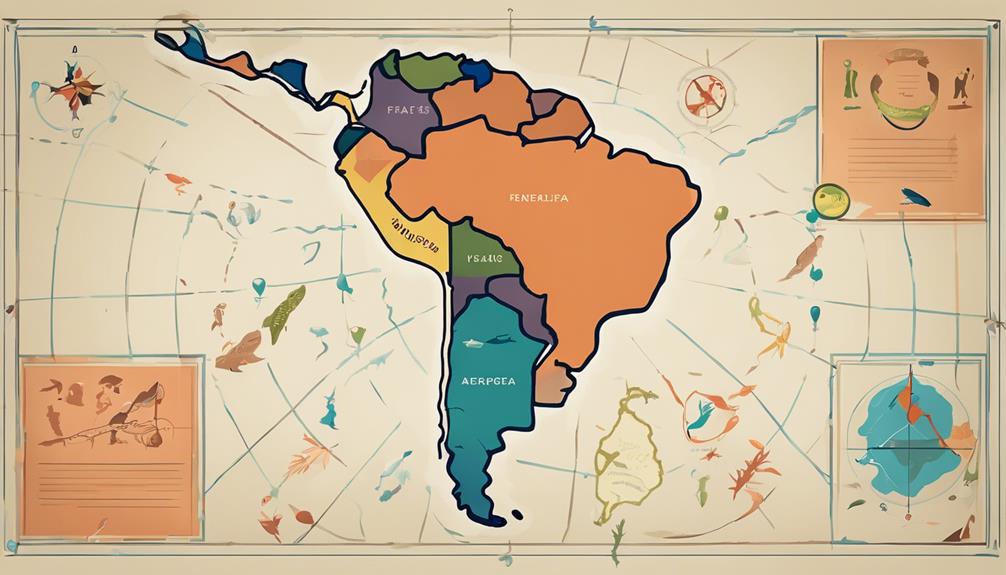
To ensure compliance with fishing regulations when transitioning from Oceania to South America, anglers must familiarize themselves with the specific fishing license rules in South America. South America, like many regions, has its own set of regulations when it comes to fishing. Latin American restrictions vary by country, so it's crucial to research and understand the rules of the specific country you plan to fish in.
One of the most renowned fishing destinations in South America is Patagonia, known for its stunning landscapes and diverse marine life. However, Patagonia fishing restrictions are in place to protect the unique ecosystem. Anglers visiting Patagonia must obtain the appropriate fishing license, adhere to catch limits, and follow sustainable fishing practices. Failure to comply with these regulations can result in fines or legal consequences.
When fishing in South America, respect for the environment and local regulations is paramount. By obtaining the necessary licenses and following the rules, anglers can enjoy their fishing experience while helping preserve the region's natural beauty. Remember to always check the specific regulations of the country you plan to visit, as fishing rules can vary widely across Latin American countries.
International Fishing License Resources
For comprehensive information on obtaining international fishing licenses, consult reputable online resources and governmental websites for accurate guidelines. These resources can provide you with detailed information on fishing license fees and the fishing license application process.
Here are some essential pointers to assist you in navigating the process:
- Check License Fees: Different countries have varying fishing license fees, so make sure to research and understand the costs associated with obtaining a fishing permit in your desired location.
- Verify Application Process: Each country has its own specific fishing license application process, which may include online applications, in-person submissions, or other requirements. Ensure you follow the correct steps for a successful application.
- Review Eligibility Requirements: Some countries may have specific eligibility criteria for obtaining a fishing license, such as age restrictions or prerequisites. Be sure to review these requirements before applying.
- Understand License Validity: Familiarize yourself with the duration of the fishing license you're applying for, as validity periods can vary from one-time permits to annual licenses.
- Contact Authorities: If you have any doubts or require further clarification regarding international fishing licenses, don't hesitate to reach out to the relevant authorities or embassies for assistance.
Frequently Asked Questions
Are There Any Specific Regulations for Catch and Release Fishing in Different Countries?
When you go catch and release fishing in different countries, it's important to follow specific regulations. Conservation practices and ethical considerations play a crucial role in protecting fish populations.
Do Children Need a Fishing License or Permit to Fish in International Waters?
In international waters, children usually need a fishing license or permit if they're actively fishing. Youth exemptions may apply in some regions, but it's crucial to check specific regulations beforehand. Enforcement procedures vary, and penalties for violations can be significant.
Parental consent might also be required for minors to fish legally. Make sure to research and comply with local laws to enjoy a hassle-free fishing experience with your children.
Are There Any Restrictions on the Types of Fishing Gear That Can Be Used in Different Countries?
In different countries, restrictions exist on the types of fishing gear you can use. These rules aim to protect the environment by limiting the impact of fishing activities.
Cultural traditions and fishing practices also influence the gear allowed. Make sure to research and adhere to local regulations when fishing abroad.
Are There Any Differences in Fishing License Fees for Tourists Compared to Residents in Various Countries?
In various countries, fishing license fees often differ for tourists compared to residents. Some places offer license exemptions for certain groups or may require special permits for specific locations or activities. It's important to check the rules, as fishing seasons and bag limits can also vary between tourists and residents.
Be sure to inquire about any discounts or special arrangements available for visitors when obtaining your fishing license.
How Are Fishing License Violations Typically Enforced and What Are the Consequences for Breaking the Regulations in Different Countries?
When you break fishing regulations in different countries, consequences can vary. Enforcement methods like fines, confiscation of equipment, or even arrest may be used. Penalties might include hefty fines, license suspension, or even jail time.
International cooperation and extradition laws can come into play for serious violations. So, it's crucial to understand and follow fishing license regulations wherever you go to avoid getting into trouble.
Conclusion
Now that you've explored the global guide to international fishing license regulations, you have a better understanding of the various requirements and policies in different regions.
Remember to always check the specific regulations of the country you plan to fish in and obtain the necessary permits to ensure you're fishing legally and responsibly.
Happy fishing!
